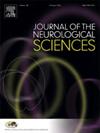A transdisciplinary, evidence-based model of ambulatory care may reduce emergency department presentations for patients with functional neurological disorder: A retrospective pre-post-intervention service evaluation
IF 3.2
3区 医学
Q1 CLINICAL NEUROLOGY
引用次数: 0
Abstract
Background
Functional neurological disorder (FND) results in high levels of physical and psychological disability, significant healthcare costs due to delayed diagnosis, repeated healthcare visits and medical investigations. New evidence-based models of care, involving multidisciplinary input centered around the biopsychosocial model, emphasizing each patient's strengths and promoting self-management, have been shown to improve patient outcomes and may reduce healthcare costs.
Aim
To investigate the effect of a new evidence-based, transdisciplinary model of ambulatory care for FND on the frequency of presentations for FND-related symptoms to emergency departments (EDs) before, during and after treatment completion.
Methods
A retrospective service evaluation was undertaken. An outpatient transdisciplinary team provided either a comprehensive rehabilitation program to participants (lasting a mean of 12.1 weeks) or an education-only program (lasting a mean of 3.0 weeks).
Results
Twenty-nine participants (22 [75.9 %] female, mean [SD] age 42.9 [17.9] years) who received 38.8 [26.6] occasions of service were included in analyses. Twenty-four were assessed as requiring and subsequently received the comprehensive rehabilitation program and 5 were deemed to require and received the education-only program. The mean (SD) number of ED presentations significantly decreased from 1.3 (1.8) pre-program to 0.1 (0.4) during the program (p = 0.000) and to 0.1 (0.4) post-program (p = 0.001).
Conclusions
A reduction in the number of FND-related presentations to ED was found after the provision of a transdisciplinary model of ambulatory care, provided in an out-patient setting. However, the nature of the study means that cause/effect cannot be proved.
一个跨学科的、循证的门诊护理模式可能会减少功能性神经障碍患者的急诊科就诊:一项回顾性干预前服务评估
背景:功能性神经障碍(FND)导致高水平的身体和心理残疾,由于延迟诊断,反复的医疗保健访问和医疗调查,导致大量的医疗保健费用。新的循证护理模式,包括以生物心理社会模式为中心的多学科投入,强调每个患者的优势并促进自我管理,已被证明可以改善患者的治疗效果,并可能降低医疗保健成本。目的探讨一种新的循证、跨学科的FND门诊护理模式对FND相关症状在治疗结束前、期间和之后到急诊科(ed)就诊频率的影响。方法进行回顾性服务评价。门诊跨学科团队为参与者提供综合康复计划(平均持续12.1周)或仅教育计划(平均持续3.0周)。结果共纳入接受服务38.8次(26.6次)的29例患者,其中女性22例(75.9%),平均[SD]年龄42.9[17.9]岁。24人被评估为需要并随后接受综合康复计划,5人被认为需要并接受仅教育计划。ED表现的平均(SD)数量从计划前的1.3(1.8)显著下降到计划期间的0.1 (0.4)(p = 0.000)和计划后的0.1 (0.4)(p = 0.001)。结论:在门诊环境中提供跨学科的门诊护理模式后,发现与fnd相关的ED就诊数量减少。然而,这项研究的性质意味着因果关系无法被证明。
本文章由计算机程序翻译,如有差异,请以英文原文为准。
求助全文
约1分钟内获得全文
求助全文
来源期刊

Journal of the Neurological Sciences
医学-临床神经学
CiteScore
7.60
自引率
2.30%
发文量
313
审稿时长
22 days
期刊介绍:
The Journal of the Neurological Sciences provides a medium for the prompt publication of original articles in neurology and neuroscience from around the world. JNS places special emphasis on articles that: 1) provide guidance to clinicians around the world (Best Practices, Global Neurology); 2) report cutting-edge science related to neurology (Basic and Translational Sciences); 3) educate readers about relevant and practical clinical outcomes in neurology (Outcomes Research); and 4) summarize or editorialize the current state of the literature (Reviews, Commentaries, and Editorials).
JNS accepts most types of manuscripts for consideration including original research papers, short communications, reviews, book reviews, letters to the Editor, opinions and editorials. Topics considered will be from neurology-related fields that are of interest to practicing physicians around the world. Examples include neuromuscular diseases, demyelination, atrophies, dementia, neoplasms, infections, epilepsies, disturbances of consciousness, stroke and cerebral circulation, growth and development, plasticity and intermediary metabolism.
 求助内容:
求助内容: 应助结果提醒方式:
应助结果提醒方式:


